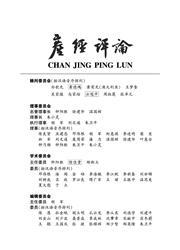

 中文摘要:
中文摘要:
基于组织生态学视角解释我国通信行业电信固话、移动和小灵通三大种群演化如何受制度约束。利用中国通信行业2003-2011年期间31个省际面板数据,建立Lotka-Volterra模型,研究得出结论:第一,移动电话的环境承载力大于固定电话,固定电话的环境承载力大于小灵通;第二,移动电话种群内部竞争大于小灵通,小灵通种群内部竞争大于固定电话;第三,移动与固定电话之间是完全的共生关系,移动电话与小灵通之间是完全的竞争关系,固定电话与小灵通之间既有竞争关系又有共生关系,且共生关系大于竞争关系;第四,小灵通退市是由制度约束、生态位重叠导致其环境承载力过低,以及种内竞争系数增长率提高和外部种群(移动电话)挤压共同所致。
 英文摘要:
英文摘要:
In this study,an integration of insights from institutional theory and organization ecology is used to explain how institutional forces constrain ecological processes driving the evolutions of the population size of the PHS,fixed telephones and mobile phone. This paper establishes a Lotka-Volterra model by using a data set of Chinese telecommunication industry in 31 provinces over the 2003-2011 periods. Some interesting conclusions are achieved. Firstly,the carrying capacity of mobile phone is greater than that of the fixed telephone; environmental bearing capacity of the fixed telephone is greater than that of the PHS. Secondly,mobile phones have the most serious internal competition; the internal competition of PHS is more serious than that of the fixed telephone. Thirdly,the relationship of mobile phones and fixed telephone is symbiotic completely. Mobile phones and PHS have completely competitive relationship and there are symbiotic and competitive relationships between fixed telephone and PHS. Finally,the reasons for PHS withdraws from the market are that the institutional constraints as well as the niche overlap decrease the environmental carrying capacity of PHS. Besides,the increasing intraspecific-competition density also plays a major role in the withdrawing process of PHS.
 同期刊论文项目
同期刊论文项目
 同项目期刊论文
同项目期刊论文
 期刊信息
期刊信息
